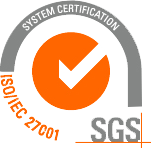NEWS
l SKC’s social value estimated at 380.5 billion won in 2018 (331.8 billion won in indirect contributions to the economy, 46.9 billion won in business-related social achievements, etc.).
l Company’s social value set to increase markedly upon completion of the takeover of manufacturer of copper foil, a core part of environmentally-friendly EV vehicle batteries.
SKC (President Lee Wan-jae) is expanding its social value by supplying environmentally-friendly, biodegradable PLA film as a packing material for Del Monte Korea’s twin-pack banana products. SKC’s PLA film, which is made with components extracted from corn, completely biodegrades within 14 weeks when buried underground. The Company is currently in consultation with customer businesses for the supply of its product, while making marketing efforts to promote its use (instead of the existing PE film) in shopping bags provided to customers.
The Company’s efforts to enhance its social value led to a rise in its social value to around 380.5 billion won last year. Looking at the items comprising social value, its achievements resulting from indirect contributions to the economy (e.g. tax payment, recruitment, etc.) topped the list at 33.1 billion won, followed by its achievements resulting from business activities (e.g. environmentally-friendly activities, accompanying growth, etc.) at 46.9 billion won, and its achievements made through social contributions at 1.8 billion won.
SKC has endeavored to enhance its social value with environmentally-friendly products, exploiting its strength as a supplier of materials to other businesses. It has gone a long way towards reducing greenhouse gas emissions by supplying architectural window film as the company with the highest share of the domestic market, and has led the way in spreading alternate energy sources by supplying good-quality film used in photovoltaic power generation. In addition, it has also made concerted efforts to reduce the negative impact of the chemical sector in which it is heavily involved.
SKC has set environmentally-friendliness as a major direction of its business operations and increased its lineup of environmentally-friendly products. It has also developed various environmentally-friendly products such as the SKC Eco-Label, which has resolved certain difficulties in PET bottle recycling, and PCT film, which helps improve vehicle fuel efficiency by reducing the weight of the cables, while strengthening the related marketing. It also plans to commercialize new versions of decorative furniture films and architectural fluorine films, which have improved upon the shortcomings of existing materials.
Among SKC’s other achievements is the strengthening of its new material technology-_ base_d open platform, which is designed to increase mutual growth by sharing the tangible and intangible know-how that SKC has accumulated over the years with startups, venture business, and SMEs. This initiative began with just five participating institutions including the Ulsan Center for Creative Economy & Innovation, but the number has increased to include the Korea Institute of Science and Technology Information (KISTI), the Office of Strategic R&D Planning, and Deloitte Anjin LLC among others. Now, the Company is providing more substantial support for the participating businesses including startups.
SKC plans to expand its social value by utilizing its strength as a supplier of high value-added materials to other businesses. Commenting on the matter, an executive of SKC said, “We will soon adopt the Eco-Label, which is an environmentally-friendly PET bottle label, both here and in the United States in consultation with local customer businesses. We are also following a procedure for the takeover of KCFT, a producer of copper foil, which is a core part of cathodes for environmentally-friendly EV vehicle batteries. Once the takeover is in full swing, our achievements related to our business operations and our indirect contributions to the economy will also increase noticeably.”
